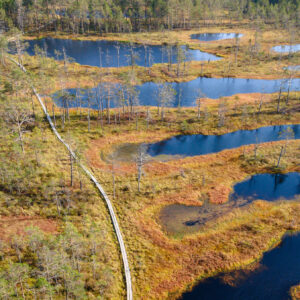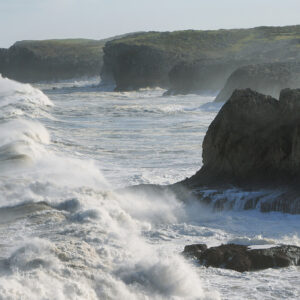Adaptation pathways to climate change through management and restoration of estuarine ecosystems
Adaptation pathways to climate change through management and restoration of estuarine ecosystems
- Dates: 01/09/2025 – 31/12/25
- Hours of study: 8 ECTS
- Price: 300€
- Tuition Scholarships: 15 (Banco Santander Scholarship Application)
- Language: English (subtitles in English, Spanish, German and Portuguese).
- Modality: Virtual Asynchronous (T) – Virtual Synchronous (Pr)
- Status: Course will be open 01/10/2025
- Requirements: Internet
- Evaluation systemOnline + Presentation of the Final Project (TFP)
- Type of certificate: UC own degree
- Related courses: ADAPTA BLUES MOOC 1, ADAPTA BLUES MOOC 2, ADAPTA BLUES MOOC 3, ADAPTABLUES MOOC 3, ADAPTABLUES TFP.
Carefully read the enrollment instructions
The pathway “Adaptation to Climate Change through the management and restoration of estuarine ecosystems”, is composed of three MOOCs that address information on:
- Climate Change related services provided by estuaries and estuarine ecosystems, and quantification tools to assess them.
- Risk associated with climate change in coastal areas and estuarine-based adaptation strategies.
- Financial tools to support estuary restoration and conservation projects as adaptation measures to combat the consequences of climate change.
This course is intended for professionals, graduates and postgraduates interested in deepening their knowledge of the role of estuarine ecosystems as an adaptation measure in the context of climate change. As well as students coming from Biology, Environmental Sciences, Civil Engineering, Environmental Engineering, Economics, Marine Sciences, Geography, Meteorology, Physics, Renewable Energies, etc.

Climate change services provided by estuaries and estuarine ecosystems and quantification tools

Climate change risk in coastal areas and estuarine-based adaptation strategies

Financial tools to support estuaries restoration and conservation projects
Creative Commons education materials created by the LIFE ADAPTA BLUES project (LIFE18 CCA/ES/001160, “Adaptation to climate change through management and restoration of European estuarine ecosystems“), coordinated by the Environmental Hydraulic Institute of the University of Cantabria(IHCantabria-UC).


